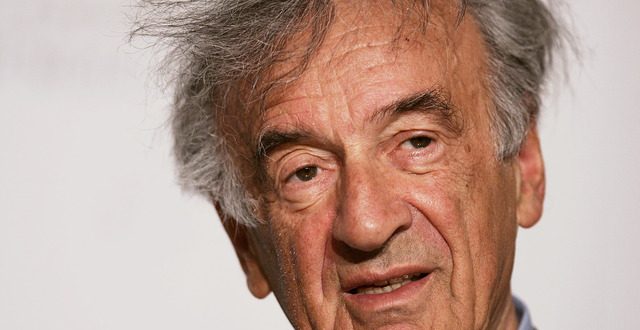Elie Wiesel, the Nobel Peace Prize winner, Holocaust survivor, and author of Night, died on Saturday. He was 87 years old.
Israeli newspaper Haaretz reported the Nobel Peace Prize winner’s death on its website on Saturday. The Israeli center for Holocaust research, Yad Vashem, tweeted a message informing about the death of the writer and activist.
Born September 30, 1928 in Sighet, Transylvania (now a part of Romania), Wiesel studied in Paris after the war and later became a journalist. During a conversation with French Nobel prize winner Francois Mauriac in 1954, he was encouraged to write about his traumatic experiences.
Originally written in Yiddish, Night was published in French in 1958 and then in English in 1960. The book got a second wind in the U.S. after Oprah selected a new English translation by Wiesel’s wife, Marion, to join her book club in 2006, propelling it to the top of the New York Times’ best-seller list.
President Jimmy Carter named Elie Wiesel Chairman of the President’s Commission on the Holocaust in 1978, and the author became the Founding Chairman of the United States Holocaust Memorial Council two years later. He received numerous other honors throughout his life, including the U.S. Presidential Medal of Freedom and a knighthood from the British government.
In 1986, Wiesel won the Nobel Peace Prize for speaking out against violence, repression, and racism. “I know your choice transcends me. This both frightens and pleases me,” he said during his acceptance speech. “It frightens me because I wonder: do I have the right to represent the multitudes who have perished? Do I have the right to accept this great honor on their behalf? … I do not. That would be presumptuous. No one may speak for the dead, no one may interpret their mutilated dreams and visions. It pleases me because I may say that this honor belongs to all the survivors and their children, and through us, to the Jewish people with whose destiny I have always identified.”
That same year, he and his wife established the Elie Wiesel Foundation for Humanity, an organization to “combat indifference, intolerance, and injustice through international dialogues and youth-focused programs that promote acceptance, understanding, and equality,” according to its mission statement.
Wiesel wrote more than 40 works of fiction and nonfiction, and he enjoyed a second career as an academic. He was appointed the Andrew W. Mellon Professor in the Humanities at Boston University in 1976, as well as a member of the faculty in the religion and philosophy departments. He also held the title of Distinguished Professor of Judaic Studies at the City University of New York from 1972-1976, and he became the first Henry Luce Visiting Scholar in Humanities and Social Thought at Yale University from 1982-1983.
It’s Wiesel’s words and actions that made him a warrior for change, and it’s his words and actions that will live on. As he remarked elsewhere in his Nobel acceptance speech, “We must always take sides. Neutrality helps the oppressor, never the victim. Silence encourages the tormentor, never the tormented.”
Agencies/Canadajournal
 Canada Journal – News of the World Articles and videos to bring you the biggest Canadian news stories from across the country every day
Canada Journal – News of the World Articles and videos to bring you the biggest Canadian news stories from across the country every day



